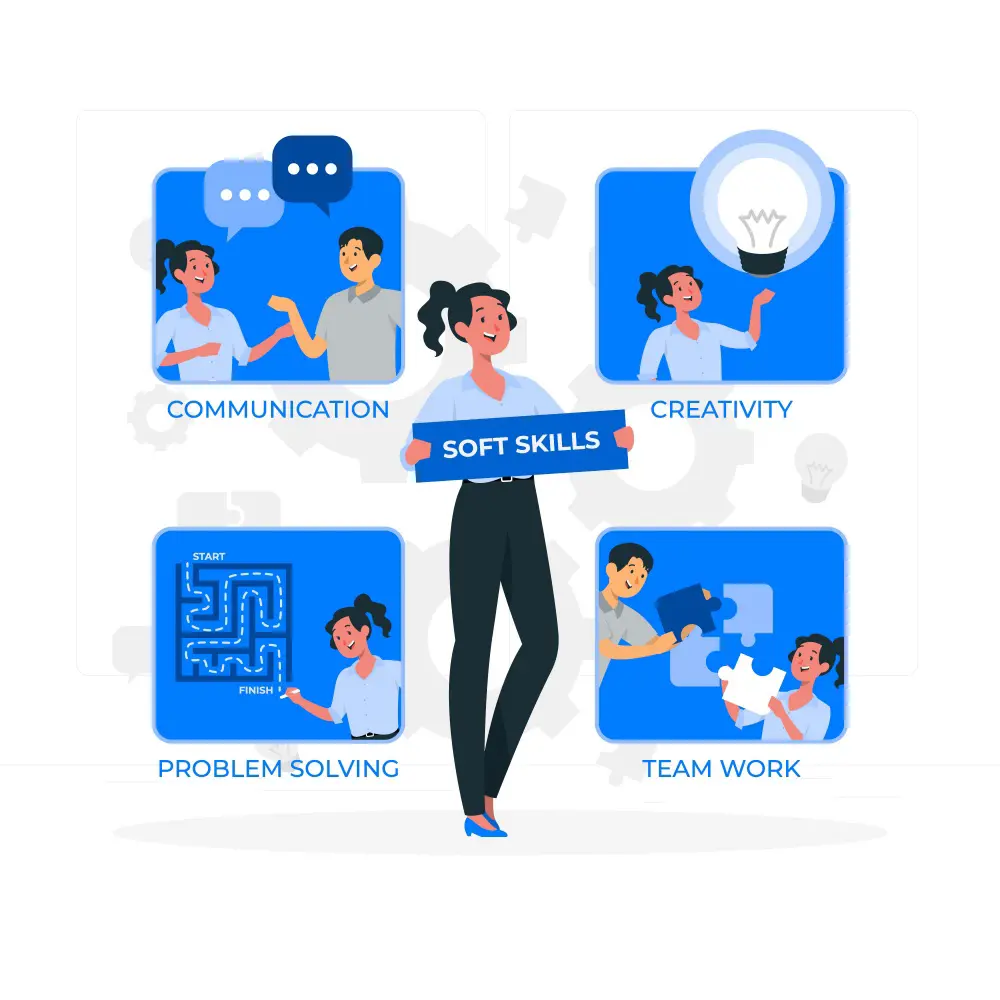
Soft skills examples include communication for effective collaboration, adaptability to navigate change and problem-solving. They are vital for career growth as they enhance workplace interactions and productivity.
These skills complement technical expertise, making individuals more versatile and valuable in diverse work environments. They enable individuals to navigate complexities, build rapport, and lead effectively, fostering personal and professional growth in any field.
Go through the article to find out the list of soft skills:
1. Communication Skills

One of the most common example of soft skills is communication. It is the art of transmitting ideas, thoughts, and information effectively. It involves not just speaking, but also attentive listening, ensuring mutual understanding.
Active engagement in conversations, asking pertinent questions, and providing constructive feedback all contribute to effective communication. It forms the backbone of relationships, enhances teamwork, and is instrumental in navigating conflicts, making it an indispensable soft skill.
2. Teamwork

Collaborating effectively with others to achieve a common goal, this skill encompasses communication, cooperation, and mutual support among team members. Strong teamwork fosters synergy, allowing diverse perspectives to merge, and enhancing creativity, problem-solving
It thrives on trust, where individuals feel valued and empowered, leading to a harmonious work environment. Teamwork not only amplifies collective achievements but also cultivates a sense of camaraderie and unity, motivating individuals to strive towards shared objectives.
3. Adaptability
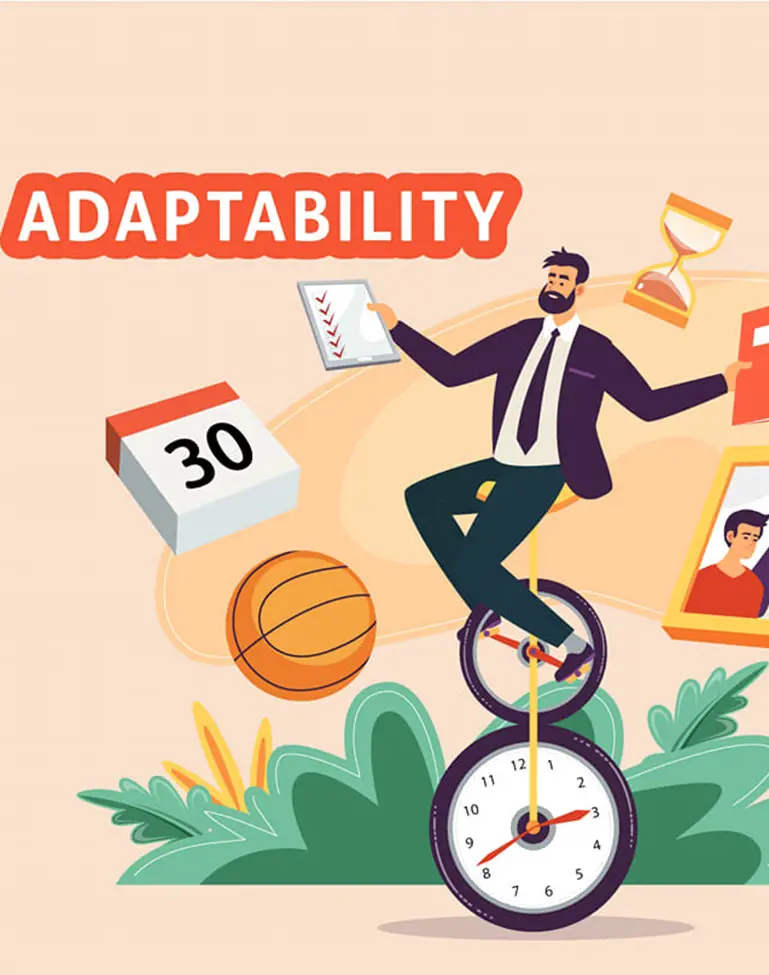
Adjusting to new conditions, environments, or situations with ease, the adaptability expertise involves being flexible, open-minded, and resilient in the face of change. It enables individuals to embrace challenges, learn from experiences, and swiftly modify approaches.
Adaptability encompasses the ability to think on one's feet, problem-solve in unfamiliar scenarios, and remain composed amidst uncertainty. In today's dynamic world, adaptability is a crucial asset, empowering individuals to thrive in various professional, social, and personal domains.
4. Problem-Solving

This soft skill in resume helps to increase the credibility of your CV. It is the capacity to identify, analyze, and resolve challenges or obstacles effectively. It involves a structured approach to assessing situations, defining issues, generating potential solutions, and implementing them.
Having this skill involves down problems into manageable parts, considering alternative perspectives, and employing logical reasoning to arrive at innovative and practical solutions. Cultivating this skill not only aids in overcoming hurdles but also encourages continuous development.
5. Time Management

This skill helps you to prioritize time for tasks and activities. It involves organizing, planning, and controlling how much time is spent on specific activities to maximize productivity and achieve goals. It encompasses setting realistic deadlines by creating schedules.
Prioritization, delegation, and the ability to focus on essential tasks while minimizing distractions are crucial aspects of effective time management. It helps individuals stay proactive, reduce stress, and maintain a healthy work-life balance.
6. Leadership
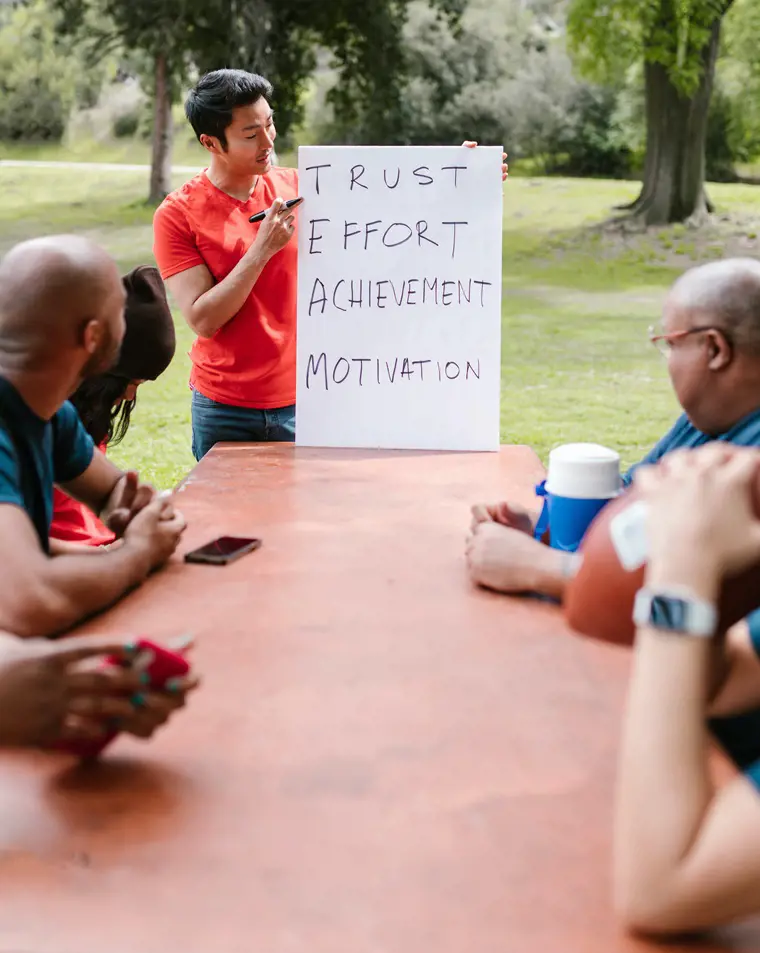
Leadership is the ability to inspire, guide, and influence others towards a shared vision or goal. It involves fostering a collaborative environment, empowering team members, and making strategic decisions. A great leader communicates effectively, motivates by example, and cultivates a culture of trust and accountability.
They embrace diversity, encourage innovation, and adapt their approach to different situations. Leadership isn't just about authority but also about empathy, integrity, and the capacity to bring out the best in individuals to achieve collective success.
7. Emotional Intelligence

If you have the ability to understand, manage, and navigate emotions, then it helps you to navigate social complexities and make informed decisions. It involves self-awareness, recognizing and understanding one's emotions, strengths, and weaknesses.
EI includes self-regulation, controlling impulses, and adapting to changing situations. Social awareness is another facet, involving empathy and understanding others' emotions, which fosters better relationships and effective communication.
8. Creativity

Creativity means coming up with fresh, valuable ideas that haven't been seen before. It's about thinking in new ways, looking at things from different angles, and not sticking to the usual paths. Being creative involves using your imagination and being curious.
It's not just about art; it's about finding innovative solutions or making new things happen. Creativity is like mixing things up, bringing together different ideas to solve problems or create something brand new. It's not stuck in one way of doing things but is open to exploring and trying new approaches.
9. Conflict Resolution

It encompasses addressing and settling disputes or disagreements between individuals or groups. It requires effective communication, active listening, and empathy to understand various perspectives. Techniques such as negotiation, compromise, and finding common ground are pivotal.
Resolving conflicts call for staying calm, acknowledging emotions, and seeking solutions that benefit all parties involved. It's about fostering mutual respect, creating win-win outcomes, and maintaining positive relationships.
10. Critical Thinking

Evaluating information, reasoning effectively, and making informed judgments, implys questioning assumptions, examining evidence, and considering multiple perspectives. This skill requires reasoning, problem-solving, and the ability to weigh arguments objectively.
Critical thinkers are adept at identifying biases, recognizing patterns, and drawing sound conclusions. It is fundamental in decision-making, problem-solving, and navigating complex scenarios, enabling individuals to make well-informed choices and adapt to various challenges effectively.
11. Stress Management

Effective stress management demands recognizing personal triggers and implementing proactive measures to minimize their impact. This might include setting boundaries, prioritizing tasks, or engaging in activities that promote relaxation and rejuvenation.
Developing strong stress management skills not only enhances one's ability to handle pressure but also contributes to better decision-making, improved productivity, and a healthier work-life balance. It's an essential skill in today's fast-paced world, enabling individuals to navigate demanding situations.
12. Active Listening

This foundational skill implies fully concentrating, understanding, responding, and remembering what is being said in a conversation. It goes beyond simply hearing words; it includes being present, empathetically tuning in to the speaker's message, and comprehending their perspective.
Active listeners use non-verbal cues, like nodding or eye contact, to show engagement and encourage the speaker. By remaining attentive and non-judgmental, active listeners create an environment of trust and openness, fostering better communication and deeper connections.
13. Networking

It emcompasses cultivating connections through mutual interests, shared goals, or common experiences. Effective networkers engage in active communication, seeking opportunities to connect, learn, and offer value to others within their field or community.
They attend events, join professional groups, and utilize social platforms to expand their network. Beyond just exchanging information, networking involves genuine relationship-building, where individuals foster trust, support, and collaboration.
14. Negotiation

Are you good at bargaining? If so then this skill empowers individuals to navigate complex situations diplomatically, fostering positive relationships and achieving mutually beneficial outcomes.
Key components of successful negotiation include assertiveness without aggression, empathy, and the ability to control emotions. It demands a strategic dialogue between parties with conflicting interests, aiming to find common ground and resolve differences.
15. Decision Making

Decision-making entails selecting the most suitable choice or course of action among available alternatives. It's a cognitive process that relies on gathering relevant information, analyzing options, and evaluating potential outcomes to arrive at a reasoned conclusion.
Different decision-making models exist, ranging from rational and systematic approaches to intuitive or instinctual methods. These models aid in structuring the decision-making process, particularly in complex scenarios.
16. Resilience

At its core, resilience concerns mental toughness, emotional strength, and the ability to maintain a positive attitude despite hardships. It's not about avoiding stress or difficult circumstances but rather about facing them with courage and perseverance.
Building resilience means cultivating self-awareness, fostering social connections, and developing effective coping strategies. Techniques like mindfulness, seeking social support, and maintaining a sense of optimism contribute to resilience.
17. Cultural Awareness
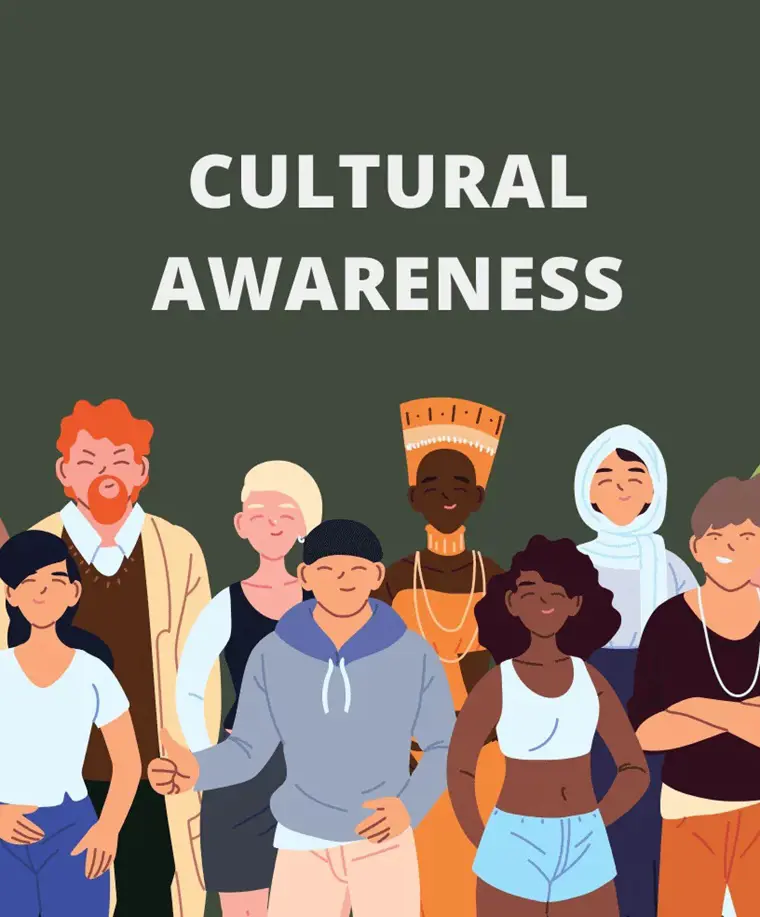
Individuals with cultural awareness understand that perspectives and practices vary across cultures and strive to be sensitive to these differences. It includes recognizing one's biases, being curious about other cultures, and actively seeking to learn about them.
In today's interconnected world, cultural awareness is crucial in both personal and professional interactions. It promotes mutual understanding, facilitates cooperation, and enriches experiences by fostering a more inclusive and harmonious global community.
18. Self-Motivation
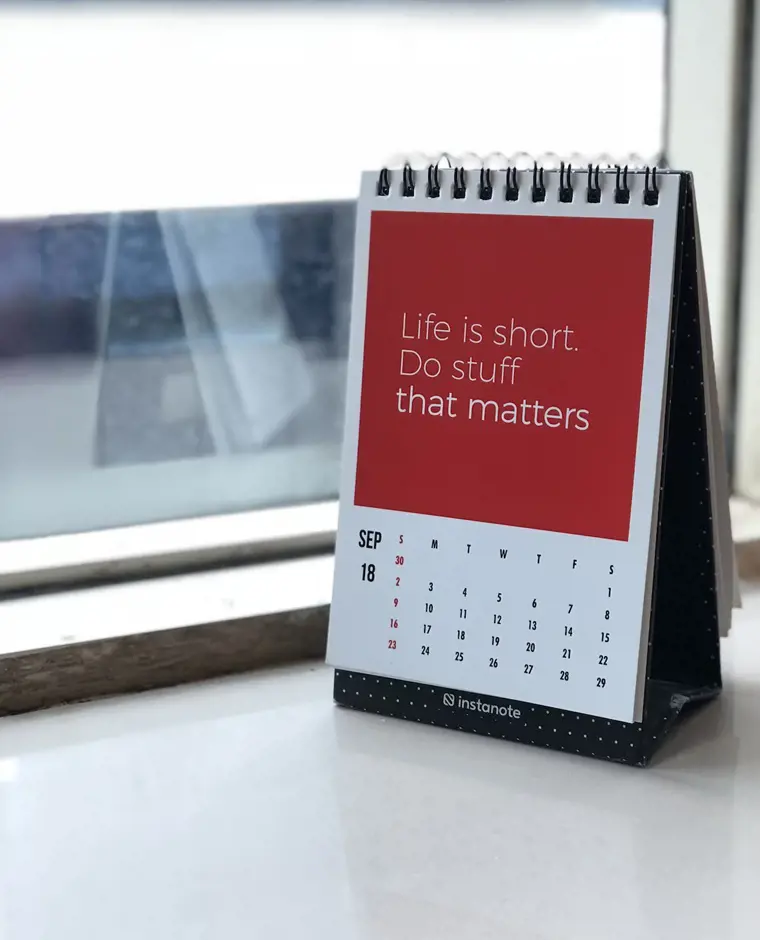
Self-motivated individuals tend to possess a strong sense of purpose or passion for what they do, allowing them to find intrinsic satisfaction and fulfillment in their endeavors. They often have a growth mindset, viewing setbacks as opportunities to learn and grow.
Cultivating self-motivation calls for setting realistic and achievable goals, maintaining a positive attitude, and managing time effectively. It also includes understanding personal strengths and weaknesses to leverage strengths and work on areas that need improvement.
19. Collaboration
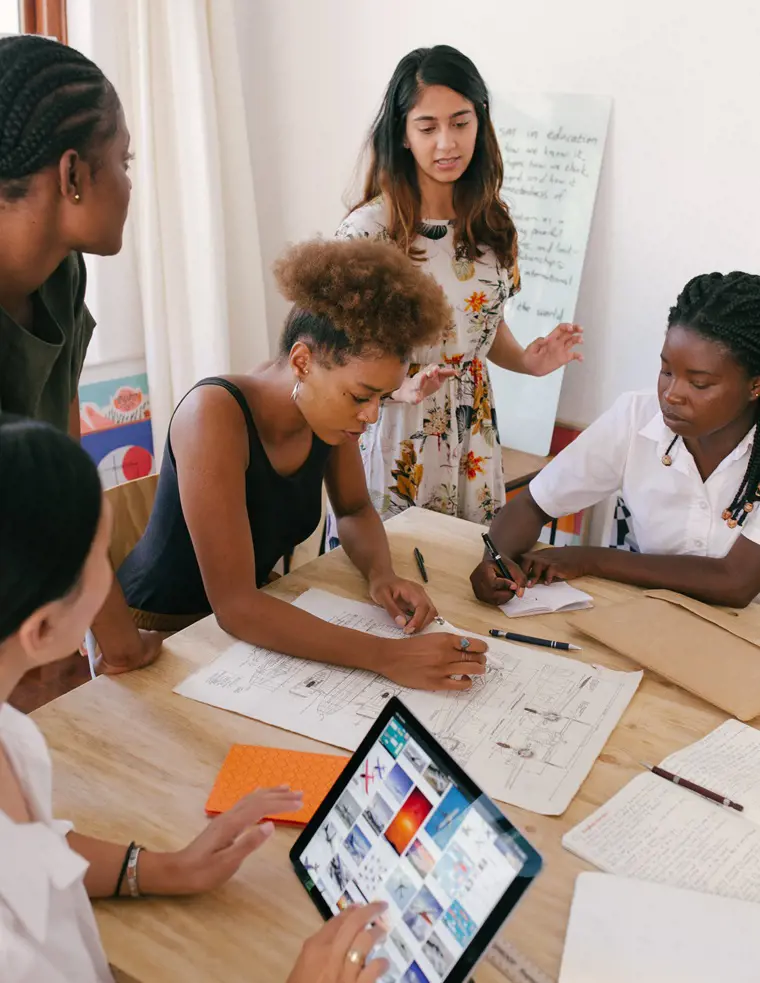
Effective collaboration relies on communication, cooperation, and mutual respect among team members. It entails actively listening to others, sharing ideas, and leveraging diverse perspectives to solve problems or generate innovative solutions.
Some elements of successful collaboration emcompass establishing clear goals, defining roles and responsibilities, and fostering an environment of trust and open communication. It often involves compromise, flexibility, and a willingness to consider different viewpoints to reach a consensus.
20. Positivity
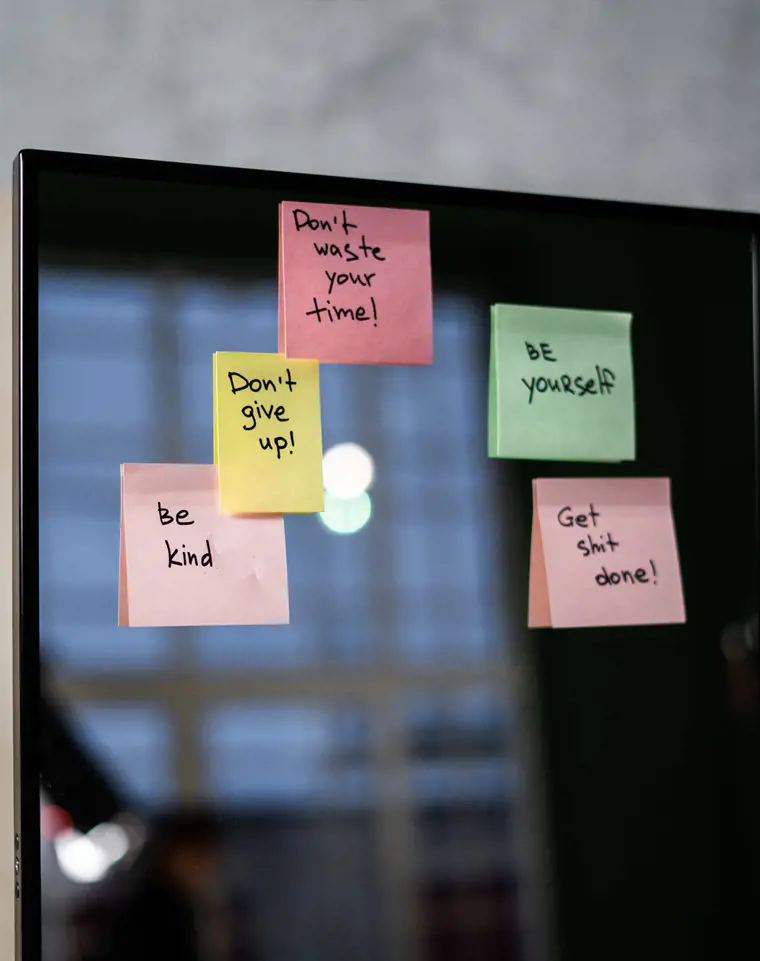
Practicing positivity involves mindfulness, self-reflection, and consciously choosing to focus on the bright side of situations. It also involves surrounding oneself with supportive and positive influences, which can contribute to maintaining an optimistic outlook.
A positive mindset enables individuals to see opportunities in difficulties, fostering a sense of gratitude, and cultivating a hopeful attitude even in adverse circumstances. It involves embracing a growth-oriented approach and viewing setbacks as opportunities for learning.

